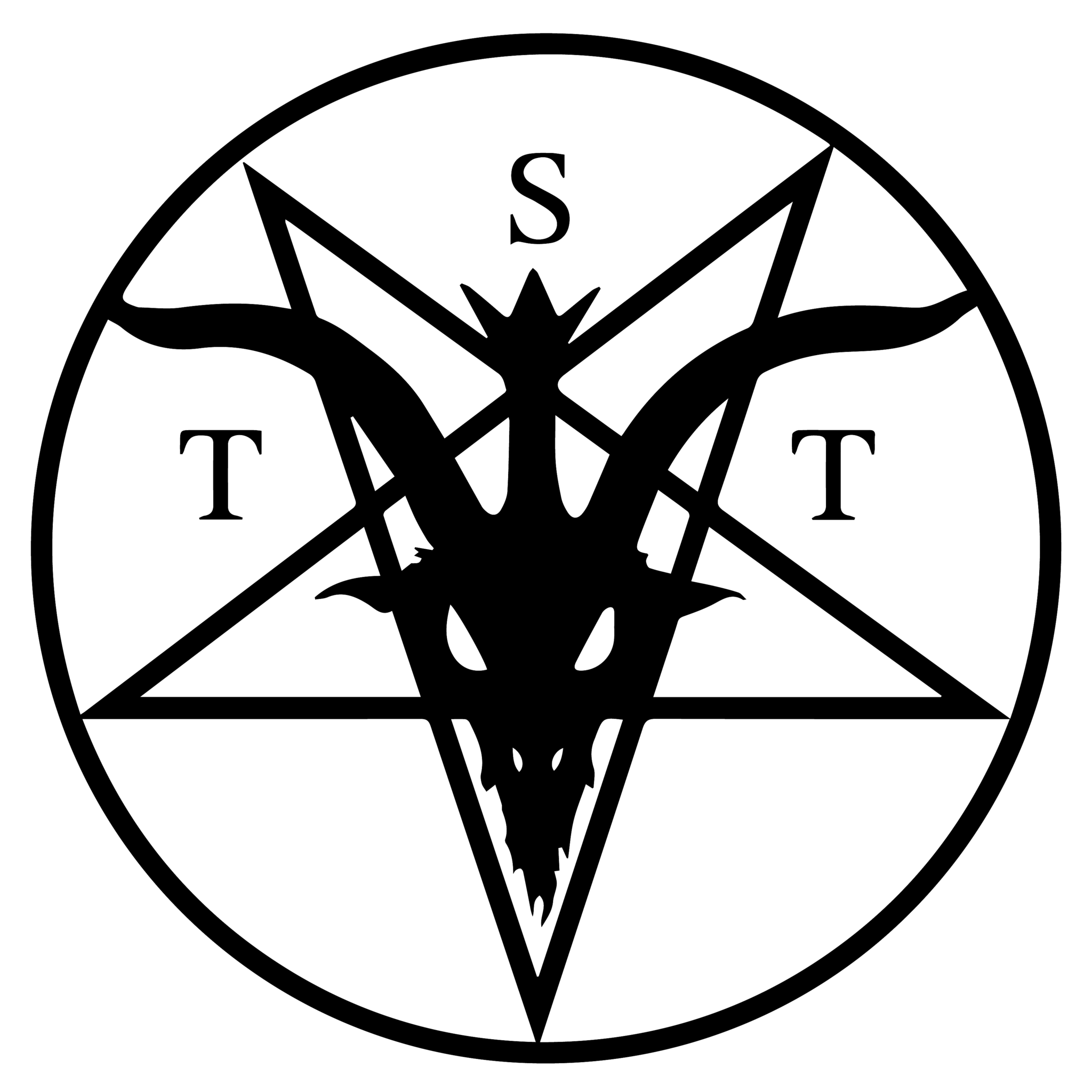Put simply, The Satanic Temple is a relatively new atheistic religion (without belief in an actual Satan) with core beliefs in the seven tenets as listed below:
I. One should strive to act with compassion and empathy toward all creatures in accordance with reason.
II. The struggle for justice is an ongoing and necessary pursuit that should prevail over laws and institutions.
III. One’s body is inviolable, subject to one’s own will alone.
IV. The freedoms of others should be respected, including the freedom to offend. To willfully and unjustly encroach upon the freedoms of another is to forgo one’s own.
V. Beliefs should conform to one’s best scientific understanding of the world. One should take care never to distort scientific facts to fit one’s beliefs.
VI. People are fallible. If one makes a mistake, one should do one’s best to rectify it and resolve any harm that might have been caused.
VII. Every tenet is a guiding principle designed to inspire nobility in action and thought. The spirit of compassion, wisdom, and justice should always prevail over the written or spoken word.
Check out https://thesatanictemple.com/pages/about-us for more info.
Hope all is well! Hail Satan!
That “Freedom to offend” was weird. Is that not a contradiction, a paradox of sorts? Certaintly, I have the freedom to be respected and not being bullied. If someone offends/bullies me, he is violating that freedom, no?
Also, “Struggle for justice is an ongoing and necessary pursuit”. It would be nice to have a definition of “justice”. Is killing/torturing someone for a crime they committed seen as justice in the TST?
To be clear, you’re not going to get definitive answers from anyone on canonical meanings for the tenets because they’re open to interpretation. They were written fairly broadly by design to accommodate various worldviews (and likely to be interesting to discuss).
For me, Tenet IV which talks about the freedom of others to offend is not a paradox. You have every right to remove yourself from the company of those who are offending you, but they in turn have the right to be offensive. Now, that is not to say that people who choose to offend are absolved of the consequences of their actions. In our Satanic social circles for example, if people are offensive, they are removed and are free to go be offensive elsewhere. Therefore, the personal choice to offend as a Satanist is one that must be taken deliberately. I see this tenet as a caution against pushing for restrictive free speech in the public square lest we lose our own free speech which may, through no direct intent of our own, offend people like fundamentalist Christians, for example.
Tenet II which is about the struggle for justice has been kicked around a lot in discussions. The other part of the wording that people ponder is the meaning of “prevail”. There are obviously various meanings for both of those words. Justice could be moral justice, social justice, legal justice… I’ve seen some people question if it even means retributive/vigilante justice and I think that’s obviously a bridge too far and incompatible with the rest of the tenets, which are meant to be understood holistically. As far as “prevail” goes, I interpret it to be more of a synonym for “guide” or “inspire” than “supercede”.
Thank you for the insightful reply. I think the “freedom to offend” comes down to personal opinion. I am honestly against it. I understand your viewpoint, and I am all for general freedom of speech, as it is an important metric for an improving society. However, imagine a scenario in which removing oneself from the situation is hard. Say a school. Should student A be free to offend student B? It is my view that student B should feel safe in school. He/She should not have to wake up and dread going to school.
As an example of how the fourth tenant might work, say that I tell you that your comment offends me. What would you think?
Do you have the right to say what you said?
Should you be forbidden from saying it?
Should I have the expectation that you take down your comment?
You probably answered “yes”, “no”, “no” because you don’t see your comment as offensive. You may even find my assertion that your comment is offensive to, itself, be offensive. What do we do the?
Without the right to offend we get into a lot of unending arguments where each person asserts offense and both may actually be right!
If you have no freedom to offend; then you have no freedom of speech.
For example, if some one espouses and expresses a truly idiotic political philosophy; and you have no freedom to offend… then you cannot truly express your view on that philosophy.



